CHASING THE DRAGON (追龙) (2017)
Genre: Crime/Action
Director: Wong Jing, Jason Kwan
Cast: Donnie Yen, Andy Lau, Kent Cheng, Philip Keung, Yu Kang, Wilfred Lau, Kent Tong, Felix Wong, Michelle Hu, Ben Ng, Raquel, Bryan Larkin, Lawrence Chou, Niki Chow, Philip Ng, Kenneth Tsang
Runtime: 2 hrs 9 mins
Rating: NC-16 (Violence and Some Drug Use)
Released By: Shaw
Official Website:
Opening Day: 5 October 2017
Synopsis: In 1963, illegal immigrant Ho (Donnie Yen) snuck into Hong Kong. Equipped with guts and combat skills, he plunged into the underground world. After many adversaries, the once good-natured man is physically crippled and transforms into a monster more atrocious than the most corrupted cops and ruthless drug dealers. Finally, Ho emerges as the most powerful Drug Lord under the control of the Chief Chinese Detective Sergeant, Lee Rock (Andy Lau). With the establishment of the Independent Commission Against Corruption (ICAC) in 1974, Rock is forced into premature retirement, but Ho still would not be stopped, as he is determined to become the sole dictator of the drug empire
Movie Review:
Just when you’ve come to hate him more than love him for truly frustrating duds such as ‘From Vegas to Macau 3’ and ‘Mission Milano’, Hong Kong’s most prolific filmmaker Wong Jing compels you to take him seriously once again with the best gangster drama we’ve seen in a long while.
Written, produced and co-directed by Wong Jing, his latest period epic charts the rise and fall of two of Hong Kong’s most infamous real-life characters from the 60s and 70s – the one-time most powerful drug lord in Hong Kong Ng Sik-ho (or better known as ‘Crippled Ho’) and the notoriously corrupt detective Lui Lok (or otherwise known as ‘Lee Rock’). Both were subjects of iconic films in the early 1990s – the Ray Lui-starring ‘To be Number One’ and the Wong Jing produced ‘Lee Rock’ and ‘Lee Rock II’ – but only now have both been brought together in the same movie, and this is a gripping saga of their intertwined fates.
Perhaps because he had already previously told Lee Rock’s story, Wong Jing anchors this movie around Sik-ho (Donnie Yen), who first steps foot in Hong Kong in 1960 as an illegal immigrant from Chaozhou with his three buddies (Philip Keung, Wilfred Lau and Kang Yu) and younger brother Peter (Jonathan Lee). Although engaged in odd jobs, the quartet find more lucrative means of employment by being paid to make up the numbers in street fights.
One such fight is that purportedly between rivalling triad heads Comic (Jason Wong) and Grizzly Bear (Ricky Yi), which turns out to be an intentionally staged confrontation between local triad head Grizzly Bear and his right-hand man Willy (Lawrence Chou) to disrupt the birthday proceedings of the well-connected Tsim Sha Tsui police district head Sir Ngan (Ken Tong). Unfortunately, the fight turns ugly with the arrival of the riot police led by the British Superintendent Hunter (Bryan Larkin), and before the night is over, Sik-ho ends up in a run-in with the arrogant and supercilious ‘gwei-lo’.
All that is witnessed by Lee Rock (Andy Lau) and his right-hand man Piggy (Kent Cheng), who spies Sik-ho’s superior fighting skills and decides to recruit him and his buddies while they are in lock-up. Lee wants Sik-ho to help him uphold a rules-based system, which he believes is integral to maintaining the peace (so that the British officials will continue to cast a blind eye) and therefore keeping the gravy train of gambling and drugs chugging smoothly.
As circumstances would have it, in order to save one of his buddies caught stealing from mafia boss Bro Chubby (Ben Ng), Sik-ho will end up working too for the former, running his drug business within the legendary Kowloon Walled City. It is within this hotbed of lawlessness that Lee will venture into one day in order to uphold the balance he holds dear – just as he had plotted for Grizzly’s right-hand man Willy to murder the latter and take his place, Lee now wants triad elder Master Dane (Chan Wai-man) to remove his rowdy nephew Comic and has brought a generous bribe in gold to seal the deal.
Things go south obviously, and the subsequent turn of events binds Sik-ho and Lee in a complex brotherhood embrace – deciding to repay the favour for saving him from Superintendent Hunter previously, Sik-ho springs to Lee’s rescue but ends up caught in the crosshairs of another parallel ambush sprung by Sir Ngan in collusion with Chubby. In the ensuing scuffle, Chubby breaks Sik-ho’s right leg as punishment, thus birthing a hardened and even more driven ‘Crippled Ho’ upon his discharge from hospital.
Sik-ho’s transformation comes at the midway point, and it is in the second hour that he truly comes into his own. Not only does he resist Lee’s manoeuvres to alter the state of play (instigated by the latter’s British superiors to split the pie four-ways instead of just between Ho and Willy), Sik-ho takes matters into his own hands against Lee’s better advice in order to exact his own vendetta against Superintendent Hunter. There is a lot of plot crammed into a slightly-past-two-hour runtime, but its machinations consistently revolve around the dynamic between Sik-ho and Lee; an especially poignant scene near the end has a visibly embittered Sik-ho pointing out squarely to Lee the personal costs and consequences of the latter’s actions over the decade plus on the both of them, and the duo coming to recognise how little of life, death, or anything in between they can truly control.
Oh yes, the movie is equal parts plot and character-driven, and Wong Jing’s (rare) achievement is how he balances both perfectly to deliver a sprawling but constantly spellbinding account of the fates and fortunes of his two key male protagonists. Equally notable is the fact that Wong Jing has in the same movie established some solid supporting parts in Piggy, Sik-ho’s trio of loyal chums and even Sir Ngan, not simply using each for narrative convenience but developing each to sufficient depth and distinction. Due credit also goes to his co-director cum director-of-photography Jason Kwan, who not only brings a vivid cinematic feel to the visuals but also imposes rigour in crafting and building up several pivotal sequences, both of which are too often lost on a frequently sloppy Wong Jing.
More prominently, ‘Chasing the Dragon’ has been sold as a showcase of Donnie Yen’s acting chops, and sure enough, Yen doesn’t disappoint; in fact, as Sik-ho, Yen probably makes the most significant breakthrough of his career since ‘Ip Man’. His portrayal of Sik-ho is understated, nuanced and impressively authentic, especially in depicting his character’s transformation from underdog to kingpin. Yen and Lau don’t share as many scenes together as we’d have liked (though, having said that, it also means Lau has some great punchy moments with Kent Cheng instead), but the duo have great chemistry when they do, embodying the genuine camaraderie between their characters as well as the seeds of distrust, suspicion and resentment sowed by their own respective ambitions, egos and greed. Because the story unfolds from Sik-ho’s point of view, it is inevitable that Lau comes off somewhat playing second fiddle to Yen, but the veteran actor’s natural screen charisma is undimmed in his third time round at playing the colourfully corrupt police sergeant Lee.
It should also be said that this gangster tale is always careful not to glorify its socially deviant protagonists – principally for fear of running afoul of Chinese censors – and is therefore less unhinged than the early 90s flicks of Sik-ho and/or Lee. In fact, Yen and Lau aren’t playing so much criminals as they are anti-heroes, so not only are there redeeming qualities about their characters in this movie (for example, Sik-ho as a loyal ‘big brother’ to his buddies and Lee bravely standing up against his racist British superiors), both will come in an epilogue set thirty years later to realise and regret the folly of their ways. Yet these politically (and commercially) savvy considerations aside, Wong Jing’s latest is still a solid and solidly entertaining example of the genre that is bloody, violent and thrilling.
And so, as the first full-fledged collaboration between Donnie Yen and Wong Jing, and as the first time that Yen and Andy Lau are starring in the same film together, ‘Chasing the Dragon’ is a more than worthy milestone both ways. We would add a third; it is the best Wong Jing movie in a very, very long while, and considering the output from the director, that is saying a lot. Indeed, there is much to enjoy in this period gangster epic, from the storytelling to the characters to the actors and as well to the richly detailed sets of Tsim Sha Tsui, Wan Chai and Kowloon Walled City. This dragon is one you won’t mind chasing from start to finish, and we guarantee you it will leave you on a visceral high.
Movie Rating:




(Featuring Donnie Yen in his most significant acting breakthrough since ‘Ip Man’, this compelling gangster drama is his and Wong Jing’s best in a long while, and will likely go down as a classic of the former genre staple from Hong Kong cinema)
Review by Gabriel Chong
You might also like:
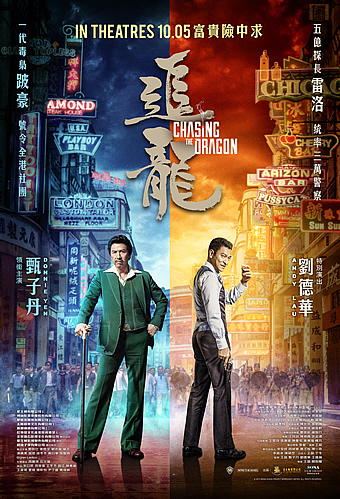
Movie Stills
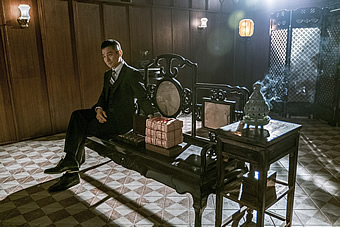
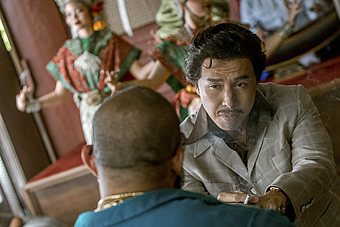
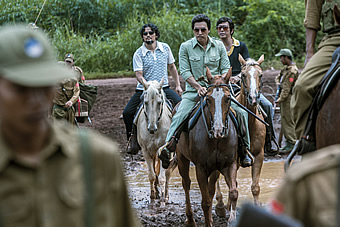
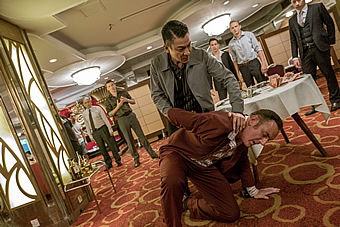
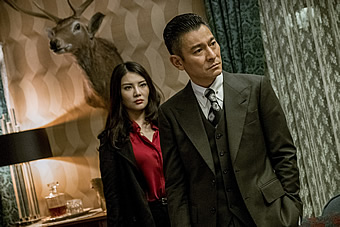
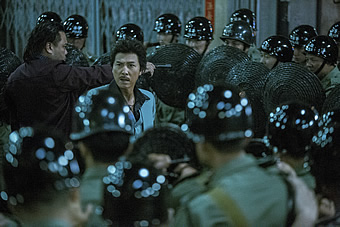
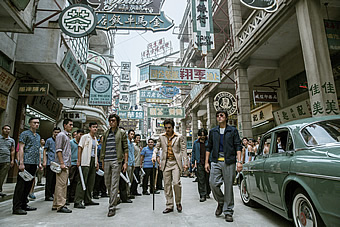
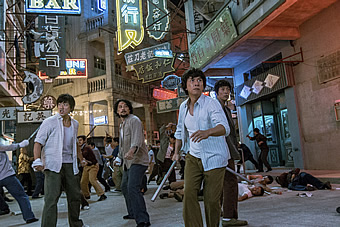
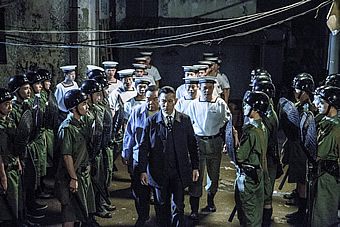

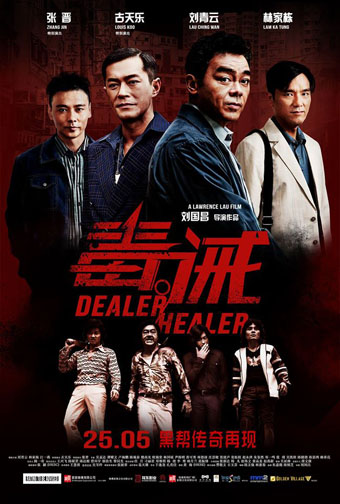
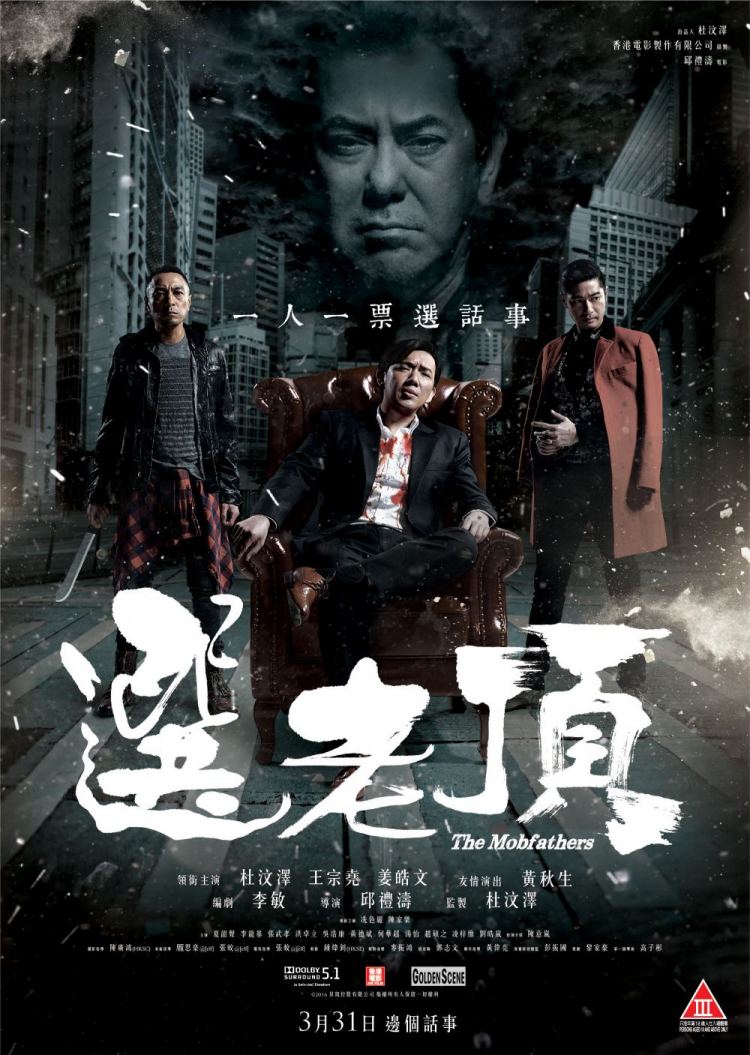
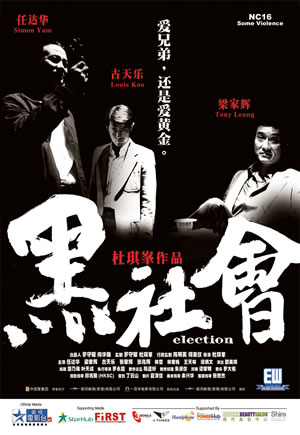
.jpg)